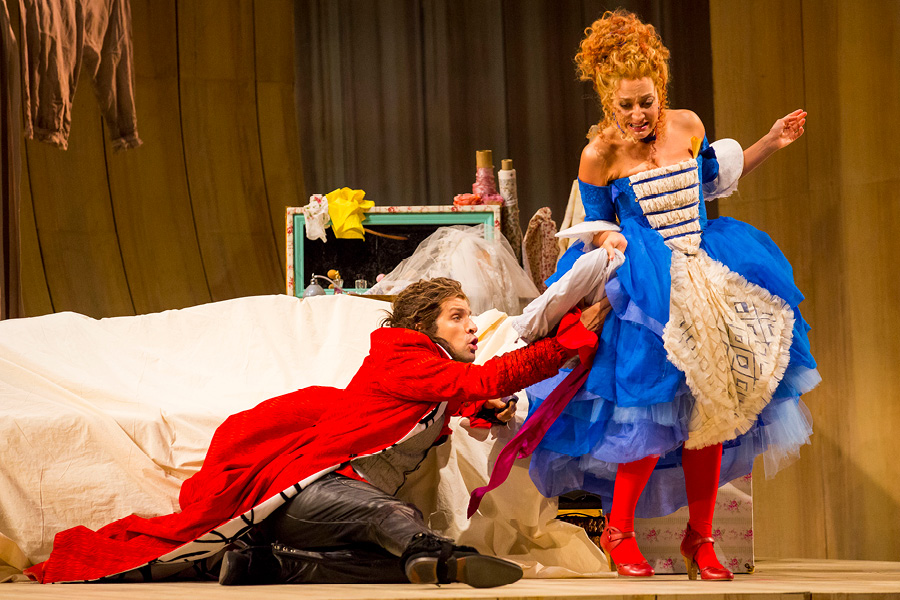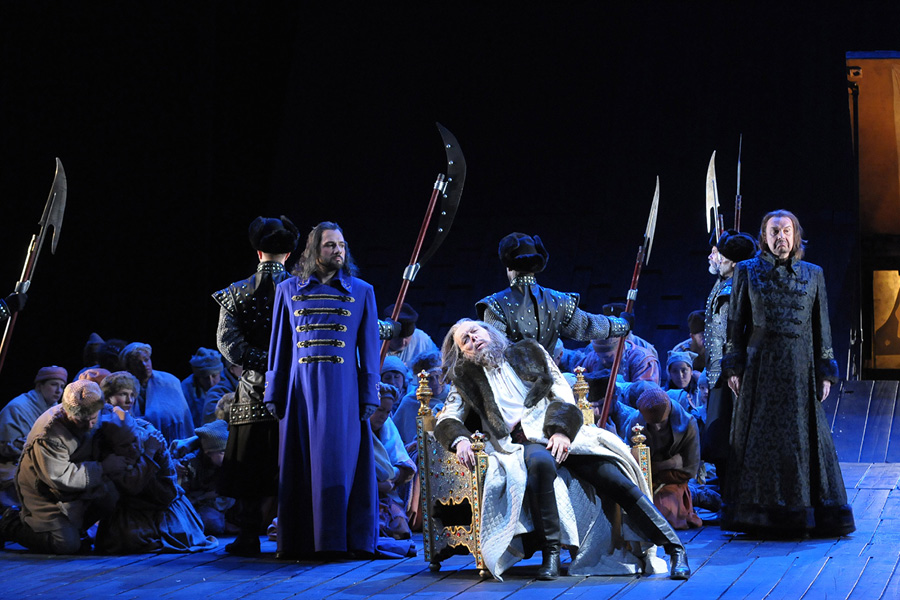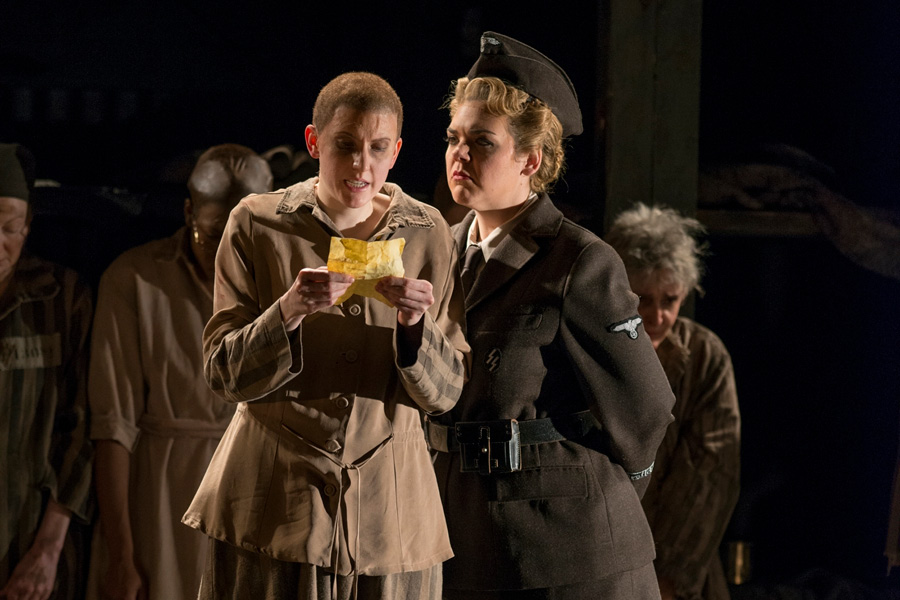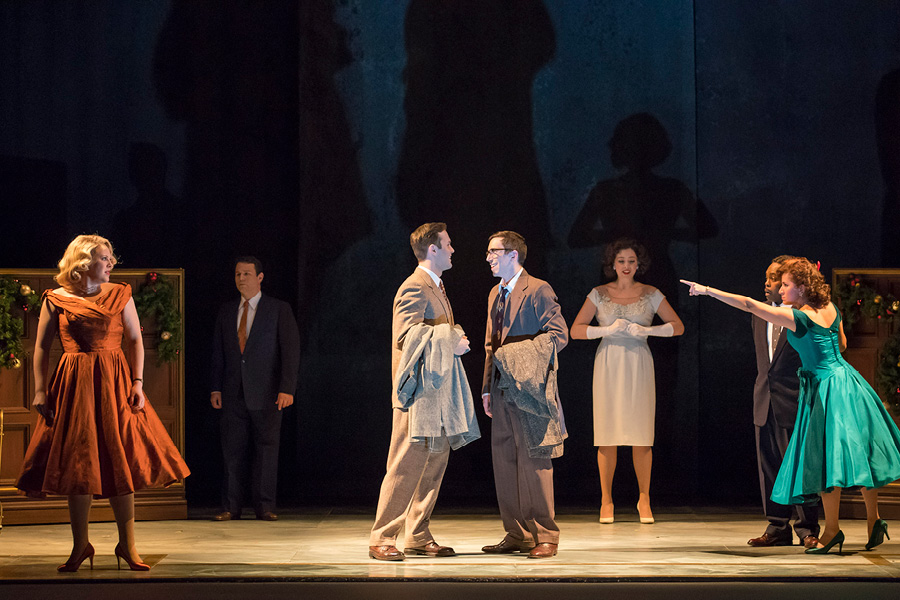March 18, 2021
Politics in Opera
Political power struggles are nearly as central to opera plots as the many aspects of love with which they’re often intertwined. From Monteverdi, Mozart, Beethoven, Verdi, and Wagner to Weinberg, Davis, Adams, Spears, and López, examples abound of composers who with their librettists have crafted operas concerning rulers and political movements good, bad, and ugly, and the societal upheavals their reigns have wrought.
Such as?
Well, there are the operas inspired by the plays of Beaumarchais (who had a side gig as an arms dealer for the French and American revolutionaries). Rossini’s The Barber of Seville and Mozart’s The Marriage of Figaro playfully expose the changes in societal attitudes brought about by the French Revolution; John Corigliano’s The Ghosts of Versailles imagines a sequel in which Beaumarchais and Marie Antoinette interact with Figaro, Rosina, and the rest. Mozart’s Don Giovanni, while not inspired directly by Beaumarchais, celebrates the dismantling of aristocratic privilege and predation.

The Marriage of Figaro: Count Almaviva (Luca Pisaroni) and Susanna (Christiane Karg)
But wait, there’s more! Beethoven’s only opera, Fidelio, inspired by real events and persons in the French Revolution, centers on Leonore, the heroic wife of political prisoner Florestan; she disguises herself as the youthful Fidelio in order to rescue her husband. And then there’s Poulenc’s Dialogues of the Carmelites, a devastatingly moving depiction of the political persecution and execution of the nuns of Compiègne during the French Revolution’s Reign of Terror.
In opera’s nascent years, Monteverdi tapped into ancient Roman history for the Machiavellian plot of The Coronation of Poppea, in which the Emperor Nero and his consort Poppea dispatch spouses, dissidents, and rivals to achieve their ends. Handel also explored Machiavellian political motifs in several of his oratorios and operas, including Rodelinda, Tamerlano, and Giulio Cesare (concerning another Roman emperor’s conquest of Egypt—and Cleopatra).
Mussorgsky’s Boris Godunov recounts the titular tsar’s exploits at the turn of the 17th century and the civilian uprising that attempted to remove him from power. Verdi was more oblique in his political-musical commentary, flying under the radar of Italy’s fierce censors by setting his operas in other lands and eras, including Nabucco, Aida, I due Foscari, Simon Boccanegra, and Don Carlo, among others. His fans read between the lines, turning Nabucco’s famous “Va pensiero” chorus into a virtual national anthem of political protest.

Boris Godunov (Ferruccio Furlanetto, seated)
Viktor Ullmann created his sardonically political opera The Kaiser of Atlantis in the Nazi concentration camp of Terezin, and was subsequently murdered in Auschwitz; the work eventually premiered in 1975. Benjamin Britten’s Gloriana was commissioned for the current Queen of England’s coronation; given the formidable challenges of the central role of the aging Queen Elizabeth I, and the not-always-flattering portrayal of the character and her relationship with the Earl of Essex (who was tried for treason and executed), it’s not surprising that it’s not often performed.
Several bold docu-operas have directly addressed headline events of more recent history and the consequences of political actions. Think of composer John Adams’s electrifying collaborations with director Peter Sellars: Nixon in China, about the president’s historic 1972 meeting with Chairman Mao; The Death of Klinghoffer, about the 1985 cruise-ship hijacking and passenger murder by the Palestinian Liberation Front; and Doctor Atomic, seen at Lyric in 2007/08, about the tense days in 1945 leading up to the detonation of the first atomic bomb near Los Alamos, New Mexico. Think also of Anthony Davis’s The Life and Times of Malcolm X, about the prescient Black American civil rights activist who was assassinated in 1965; and Amistad, which had its world premiere at Lyric in 1997, about the trials of captured Africans who in 1839 hijacked the title slave ship, attempted to return to Africa, and landed instead on the Eastern U.S. seaboard. Former president John Quincy Adams represented them before the Supreme Court, and they were eventually freed and returned to their homelands. (By sheer coincidence, Steven Speilberg’s movie of the same name and subject came out at the same time.)

The Passenger: Marta (Amanda Majeski) and Lisa (Daveda Karanas)
And then there’s Mieczysław Weinberg’s powerful opera The Passenger, based on the short novel by Auschwitz survivor Zofia Posmysz; Gregory Spears’s Fellow Travelers, inspired by Thomas Mallon’s novel about Washington’s diplomatic circles and the political persecution of homosexuals led by rabid anti-Communist U.S. Senator Joseph McCarthy in the 1950s; and Jimmy López’s Bel Canto, inspired by the Ann Patchett best-selling novel that was inspired by the Peruvian hostage crisis of 1996-97, which had its world premiere at Lyric in 2015/16.
We can’t wait to see and hear how current (and future) opera composers and librettists interpret the ongoing societal upheavals and political struggles of the new millennium.

Fellow Travelers: Hawkins Fuller (Joseph Lattanzi, center left) and Timothy Laughlin (Jonas Hacker, center right)
Photos: Michael Brosilow, Dan Rest, Todd Rosenberg, Lyric Opera of Chicago
